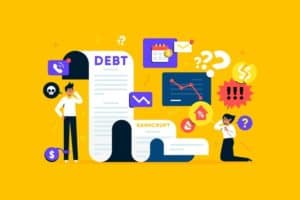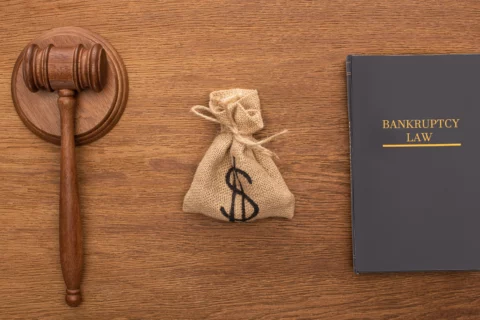Common Reasons for Filing Bankruptcy: Discharged Debt
Being bankrupt is not easy. So is learning how to file and how a bankruptcy case can help solve your financial problems. People struggling financially, however, persist in learning about declaring bankruptcy as a debt-relief option. A bankruptcy filing enables the bankrupt individual to pay back certain lenders, wipe out debts as much as possible, and financially have a fresh start at life.
The different types of bankruptcy proceedings are suited for different types of debt and circumstances. No two bankruptcy cases are the same. When filing for bankruptcy, an individual can try to have debts forgiven or eliminated through liquidated assets or through a three or five-year-long payment plan.
What is referred to as a bankruptcy discharge?
The bankruptcy code can be quite difficult to comprehend, especially for someone unfamiliar with its specific details. After you declare bankruptcy, whether filing Chapter 7 (liquidation) or Chapter 13 (reorganization), a court order will discharge debts owed from certain lenders. A reliable bankruptcy lawyer can provide legal help and differentiate these two bankruptcy filings brought to court.
 A bankruptcy discharge that comes with your declaration of bankruptcy will essentially prohibit concerned debt collectors from asking for repayment for what you owe. A debtor has no more obligation to pay off creditors of loans forgiven by the bankruptcy court, which is one of the most common reasons why people overwhelmed with making payments decide to file a bankruptcy case.
A bankruptcy discharge that comes with your declaration of bankruptcy will essentially prohibit concerned debt collectors from asking for repayment for what you owe. A debtor has no more obligation to pay off creditors of loans forgiven by the bankruptcy court, which is one of the most common reasons why people overwhelmed with making payments decide to file a bankruptcy case.
Although discharged debts are more immediate in a Chapter 7 bankruptcy petition, a good local attorney can discuss how debts may also be discharged in a Chapter 13 petition for bankruptcy, albeit after a certain period.
Pursuant to bankruptcy law, after making all monthly payments in your debt repayment plan, you could be eligible to have specific debts forgiven. Individuals who filed for bankruptcy may have the following discharged:
- unpaid credit card bills and medical bills
- certain tax debt
- personal loans and almost all unsecured debts
In contrast, the following are not eligible for discharge:
- student loans, child support, and alimony
- certain tax debt
- criminal fines, penalties, and other similar debts
Note that these lists are far from exhaustive. In some instances, creditors of an individual who files for bankruptcy may attempt to counter the motion and have certain debts declared non-dischargeable.
The bankruptcy court will be sending the individual overseeing your liquidation of assets or payment plan (your bankruptcy trustee) the discharge notice. This will also be sent to concerned unpaid creditors and should stop creditor or debt collector harassment.
A reliable bankruptcy attorney from a trusted law firm can help you avoid repossession or foreclosure of personal property. He or she can also help you fill out bankruptcy forms, prepare the paperwork and supporting documents, and look forward to life after bankruptcy. When dealing with debt, contact a reliable law firm. Call us at Cutler & Associates, LTD for any concerns about your bankruptcy petition.


